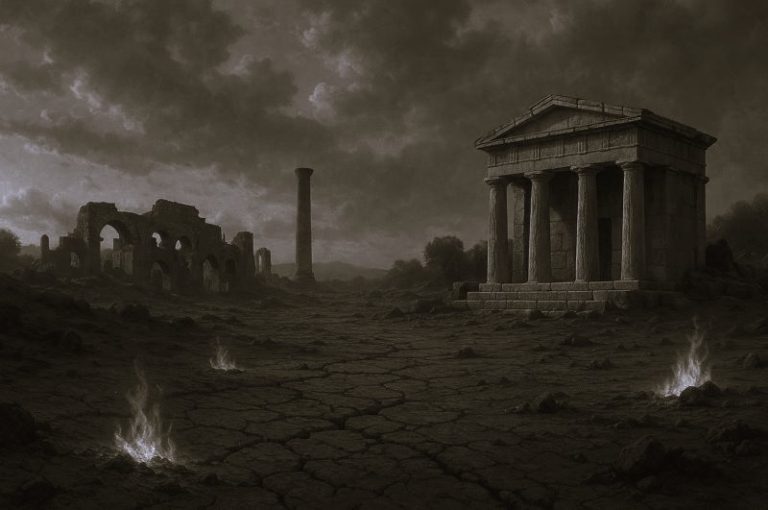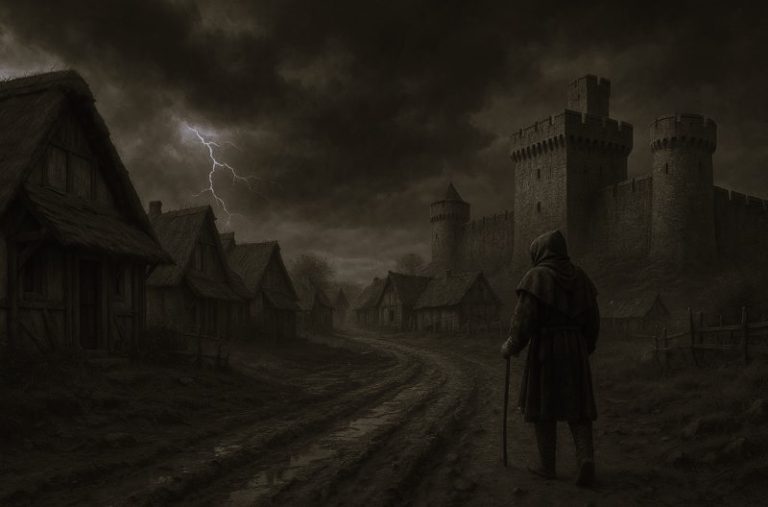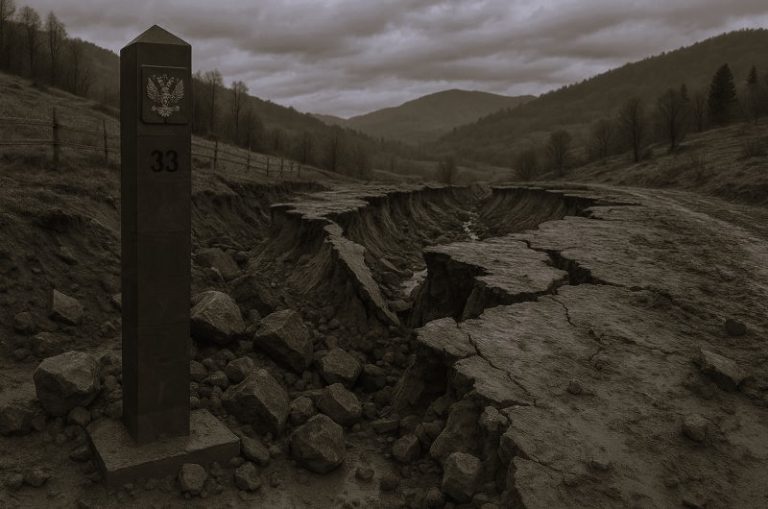
By Ed Crews
Among the first things the Jamestown voyagers did when they set up English America’s first permanent settlement was conduct an election. Nearly as soon as they landed—April 26, 1607, by their calendar—the commanders of the 105 colonists unsealed a box containing a secret list of seven men picked in England to be the colony’s council and from among whom the councilors were to pick a president. Captain John Smith, reporting from Jamestown, wrote that about eighteen days later, “arriving at the place where wee are now seated, the Counsell was sworne, the President elected, which for that yeare was Maister Edw. Maria Wingfield.”

Because Smith was at first denied his seat on suspicion of concealing a mutiny, six men—less than 6 percent of the population—participated in the choice of President Wingfield. From such moments in early American history, when the franchise was limited to a special few, grew the vote’s extension to broader ranks of individuals with a stake in their government. Derived from English practice, and refined by American experience, from them evolved our belief in the ballot and our ideas about who is entitled to cast one.
Those beliefs and ideas we have reexported to such places as Afghanistan and Iraq. What may become of those endeavors, time will tell. As we wait to see, we might recall that Americans have been experimenting with representative government for 400 years and are still tinkering with the mechanics. As Hofstra University law professor Grant M. Hayden put it in the Oxford Companion to American Law: “The history of voting in the United States has not been characterized by a smooth and inexorable progress toward universal political participation. It has instead been much messier, littered with periods of both expansion and retraction of the franchise with respect to many groups of potential voters.”

The first representative assembly in English America convened in Jamestown’s church July 30, 1619, with two burgesses from each of Virginia’s twenty-one plantations and corporations. From the 1600s to the 1700s, the republican approach to polity spread along the seaboard and developed. By the mid-1700s, Hayden wrote, representative government had become a tradition in the thirteen colonies that became the United States. Voting was commonplace, though not uniform. Each colony pursued its methods, policies, restrictions, and exceptions. But, by modern standards, the right to vote in colonial America was narrow, and there were fewer opportunities for its exercise.
Before the Revolution, colonists generally did not vote for their governors—the chief executives of what they thought of as their countries. The English king appointed most governors, though there were exceptions. Connecticut and Rhode Island voters elected governors. Many colonists did not choose their local officials. Some governors, like Virginia’s, appointed justices of the peace, sheriffs, coroners, and clerks. Some towns in such colonies as New Jersey and Pennsylvania, however, had local elections.
Colonists could vote for legislators to the lower house of their assemblies. In 1730, the number of those legislators ranged from seventeen in New Hampshire to ninety-one in Massachusetts. Legislatures tended to pass few laws. Their greatest power was their power to tax. Governors needed colonial politicians to provide funds for their initiatives, government administration, and their salaries.

Typically, white, male property owners twenty-one or older could vote. Some colonists not only accepted these restrictions but also opposed broadening the franchise. Duke University professor Alexander Keyssar wrote in The Right to Vote: The Contested History of Democracy in the United States:
At its birth, the United States was not a democratic nation—far from it. The very word “democracy” had pejorative overtones, summoning up images of disorder, government by the unfit, even mob rule. In practice, moreover, relatively few of the nation’s inhabitants were able to participate in elections: among the excluded were most African Americans, Native Americans, women, men who had not attained their majority, and white males who did not own land.

John Adams, signer of the Declaration of Independence and later president, wrote in 1776 that no good could come from enfranchising more Americans:
Depend upon it, Sir, it is dangerous to open so fruitful a source of controversy and altercation as would be opened by attempting to alter the qualifications of voters; there will be no end to it. New claims will arise; women will demand the vote; lads from 12 to 21 will think their rights not enough attended to; and every man who has not a farthing, will demand an equal voice with any other, in all acts of state. It tends to confound and destroy all distinctions, and prostrate all ranks to one common level.

Colonial Voting restrictions reflected eighteenth-century English notions about gender, race, prudence, and financial success, as well as vested interest. Arguments for a white, male-only electorate focused on what the men of the era conceived of as the delicate nature of women and their inability to deal with the coarse realities of politics, as well as convictions about race and religion. African Americans and Native Americans were excluded, and, at different times and places, the Protestant majority denied the vote to Catholics and Jews. In some places, propertied women, free blacks, and Native Americans could vote, but those exceptions were just that. They were not signs of a popular belief in universal suffrage.
Property requirements were widespread. Some colonies required a voter to own a certain amount of land or land of a specified value. Others required personal property of a certain value, or payment of a certain amount of taxes. Examples from 1763 show the variety of these requirements. Delaware expected voters to own fifty acres of land or property worth £40. Rhode Island set the limit at land valued at £40 or worth an annual rent of £2. Connecticut required land worth an annual rent of £2 or livestock worth £40.

Such requirements tended to delay a male colonist’s entry into the voter ranks until he was settled down and established. They reflected the belief that freeholders, as property owners were called, had a legitimate interest in a community’s success and well-being, paid taxes and deserved a voice in public affairs, had demonstrated they were energetic and intelligent enough to be trusted with a role in governance, and had enough resources to be independent thinkers not beholden to the wealthiest class. English jurist William Blackstone wrote in the 1700s:
The true reason of requiring any qualification, with regard to property, in voters, is to exclude such persons as are in so mean a situation that they are esteemed to have no will of their own. If these persons had votes, they would be tempted to dispose of them under some undue influence or other. This would give a great, an artful, or a wealthy man, a larger share in elections than is consistent with general liberty.

Colonies also restricted opportunities to serve in their legislatures. Immediately before the Revolution, five insisted on significant property requirements for officeholders. But candidates tended to be wealthy anyway.
By twenty-first-century standards, colonial assemblies did not conduct much business. They passed few bills and dealt with a narrow range of issues. They tended to linger, however. Legislative sessions lasted weeks, sometimes months. Tradesmen, merchants, and owners of small and medium farms could not afford to neglect work for extended periods. The wealthy could.

Holding office yielded few immediate benefits and some real costs. Men ran for office from a sense of duty and the prestige associated with a legislative seat.
Colonial elections little resembled today’s. Election intervals often were irregular. Governors called for polls whenever they seemed necessary—though Massachusetts, Connecticut, Rhode Island, and Pennsylvania, for example, conducted them annually. Sheriffs posted notices of elections in prominent places throughout their bailiwicks. On the appointed day, voters traveled to a courthouse to cast their ballots.

Campaigning by candidates was different from today’s. There were no mass media or advertising. Candidates talked with voters in person, walking a line between undue familiarity and aloofness. Prospective officeholders were expected to be at the polls on election day and made a point to greet all voters. Failure to appear or to be civil to all could be disastrous. In some areas, candidates offered voters food and drink, evenhandedly giving “treats” to opponents as well as supporters.
Some highborn Virginians thought meeting the electorate and making campaign promises were demeaning. In 1776, Robert Wormeley Carter lost an election. His father said his son was defeated even though he had “kissed the — of the people and very seriously accommodated himself to others.”
Elections often provided an excuse for people to visit neighbors and to conduct business. Behavior was not so restrained as today. A visitor who arrived by stagecoach on election day 1778 at the courthouse in Virginia’s Hanover County wrote:
The moment I alighted, a wretched pug-nosed fellow assailed me, to swap watches. I had hardly shaken him off, when I was attacked by a wild Irishman, who insisted on my “swapping horses” with him; and, in a twinkling ran up the pedigree of his horse to the grand-dam. Treating his importunity with little respect, I was near being involved in a boxing match, the Irishman swearing that I did not “rate him like a jintleman.”

Diversions aside, the main election-day business was to vote. A few colonies, including Pennsylvania, Delaware, and North Carolina, employed some form of ballot. Others, like Virginia, relied on public voice votes, an English tradition. Voice voting made ballot counts harder to rig and, cast in the presence of friends, neighbors, local officials, and candidates, left no doubt about a voter’s intention. In Virginia, voice voting was a spectator event, every voter occupying center stage for a few moments. In his book Gentlemen Freeholders: Political Practices in Washington’s Virginia, Charles S. Sydnor wrote:
As each freeholder came before the sheriff, his name was called out in a loud voice, and the sheriff inquired how he would vote. The freeholder replied by giving the name of his preference. The appropriate clerk then wrote down the voter’s name, the sheriff announced it as enrolled, and often the candidate for whom he had voted arose, bowed, and publicly thanked him.
Apparently, voter turnout usually was low. Voting, especially in rural areas, took effort. Voters might have to travel a long distance to a courthouse and sometimes paid for food and lodging. The effort and expense, coupled with lost time from shops, inns, and farms, meant some men stayed at home election day.
The Revolutionary War stimulated a desire for reform. Advocates of change said that the conflict was about liberty and representation. They believed in a voting system that embodied those aims for more people. Debates were most intense between 1776 and the adoption of the federal Constitution. The range of disputes was too vast and too complex to cover in depth in this space. The chief concerns, however, focused on extending voting rights to veterans, the implications of a broader electorate, and the validity of property requirements. Property requirements seemed to attract the most attention. They came under attack almost as soon as the Revolution began.
Benjamin Franklin lampooned them when he wrote:
Today a man owns a jackass worth 50 dollars and he is entitled to vote; but before the next election the jackass dies. The man in the mean time has become more experienced, his knowledge of the principles of government, and his acquaintance with mankind, are more extensive, and he is therefore better qualified to make a proper selection of rulers—but the jackass is dead and the man cannot vote. Now gentlemen, pray inform me, in whom is the right of suffrage? In the man or in the jackass?
Property restrictions gradually disappeared in the nineteenth century. Tax-paying requirements replaced property ownership, though they too waned after the 1820s. By the 1850s, most economic barriers to voting had disappeared.
Some Americans hoped the Constitution would clarify, unify, and perhaps expand voting rights nationally. It did not. Hayden wrote: “Under the constitution, then, the breadth of the right to vote for both state and national elections was fixed by state law. And at the time of ratification, this meant that many people—including most women, African Americans, Native Americans and propertyless white men—could not vote.”
By not addressing the suffrage issue more broadly, the Constitution’s authors fostered a long-running battle over voting rights. This struggle lasted well into the twentieth century, forming a focal point for the civil rights and women’s rights movements.
Twenty-first century perspectives on the restrictiveness of early American voting ideas miss a point. By eighteenth-century standards, Americans enjoyed considerable voting rights, according to Andrew Jackson O’Shaughnessy, a University of Virginia history professor specializing in the Revolutionary period.
The 1700s were the time of absolute monarchs in continental Europe. Centuries of skillful political maneuvering by kings had concentrated power in their hands at the expense of their subjects. “All European countries had something like a parliament at some time, but, these began to disappear in the late Middle Ages through the early modern period,” O’Shaughnessy said in an interview. “These groups lost control of the power to tax. Kings found ways to tax without calling an elective body.”
Britain was an exception. Parliament retained the power to tax, ensuring elections and representative government. British voting practices, however, tended to be unfair, uneven, corrupt, and far more restrictive than America’s. Some towns and cities, for example, could not vote, and growing urban areas went underrepresented, though rural areas with declining population retained parliamentary seats. This system, created in the medieval period, remained unchanged in the 1700s. It begged for reform, which came in 1832.
So by comparison, America with its voting imperfections offered a broad-minded and healthy attitude toward the franchise. O’Shaughnessy also argues that representative government and its voting practices served America well in the post-Revolutionary period.
“One reason that the United States was stable after the war was that it did not need to revamp its system of government, and the men in charge had experience in governing,” he said. “This made the country far more stable than places that did not have this tradition and later went through dozens of constitutions and revolutions. In short, when it came to government and voting, Americans had a model to build on.”
Originally published by Colonial Williamsburg Journal, Spring 2007, republished with permission for educational, non-commercial purposes.







